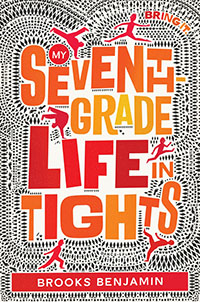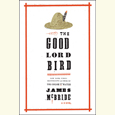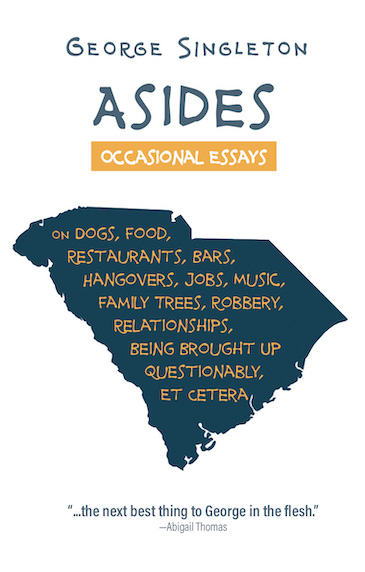Gotta Dance
In Brooks Benjamin’s debut children’s novel, a seventh-grader faces some hard choices as he tries to figure out friendship, loyalty, and what it means to be true to yourself
In Brooks Benjamin’s debut middle-grade novel, My Seventh-Grade Life in Tights, twelve-year-old Dillon Parker wants to compete for a scholarship to a dance school, but his freestyle crew thinks dance schools are for losers. When Brooks Benjamin was in sixth grade himself, he was a member—not a very talented one, he says—of a dance crew like the one Dillon belongs to. But unlike the author, Dillon is presented with an opportunity to improve his technique.
 As a member of his school’s freestyle crew, Dillon’s dance style relies on improvisation and martial-arts moves—he calls it “ninja freestyle.” When he says he wants to learn more about dancing, crew leader Kassie reminds him, “[The] fact that you don’t have all that technique is why we love your dancing. Me and Carson went through the brainwashing at our studios. Which is why I only have one rule: studios are for sellouts. They’re all business, and dancing’s all art.”
As a member of his school’s freestyle crew, Dillon’s dance style relies on improvisation and martial-arts moves—he calls it “ninja freestyle.” When he says he wants to learn more about dancing, crew leader Kassie reminds him, “[The] fact that you don’t have all that technique is why we love your dancing. Me and Carson went through the brainwashing at our studios. Which is why I only have one rule: studios are for sellouts. They’re all business, and dancing’s all art.”
Kassie’s personality is forceful enough to make Dillon hesitate about auditioning for a summer scholarship at Dance-Splosion, where Kassie studied before adopting the studios-are-for-sellouts view. He secretly records an audition tape and uploads it to YouTube but almost instantly changes his mind and deletes it from his phone without even watching it. The hitch: he forgets to remove it from YouTube.
Somehow Kassie finds the recording—along with 1,594 other viewers, including, of course, many of their classmates. Finally watching the video himself, Dillon realizes he’d split his pants during one of his signature kicks, revealing his underwear and leading to his new nickname: Tighty Whitey.
 But to Dillon’s surprise, Kassie isn’t angry that he ignored her command. In fact, she sees this as a golden opportunity to show Dance-Splosion what she really thinks of them: in the plan she cooks up, Dillon must convince Sarah, the studio’s best dancer, to coach him. If he combines his own unusual style with the polished techniques that Sarah has learned, she says, he has a chance at the scholarship. And when he wins, he’ll decline the scholarship and tell them what he—or rather Kassie—thinks of creativity-stifling studios. If the plan sounds extreme (why does Kassie hate studios so much anyway?) and far-fetched (would a few weeks of study really be enough to give a competitive edge to a novice?)—well, that’s seventh grade.
But to Dillon’s surprise, Kassie isn’t angry that he ignored her command. In fact, she sees this as a golden opportunity to show Dance-Splosion what she really thinks of them: in the plan she cooks up, Dillon must convince Sarah, the studio’s best dancer, to coach him. If he combines his own unusual style with the polished techniques that Sarah has learned, she says, he has a chance at the scholarship. And when he wins, he’ll decline the scholarship and tell them what he—or rather Kassie—thinks of creativity-stifling studios. If the plan sounds extreme (why does Kassie hate studios so much anyway?) and far-fetched (would a few weeks of study really be enough to give a competitive edge to a novice?)—well, that’s seventh grade.
Dillon duly begs for help from Sarah, who is always accompanied by her two best friends, girls who wear “their hair pulled back into ponytails, stretching their faces into tight half-surprised, half-irritated looks.” They’re an intimidating trio, especially for a younger boy. To make matters worse, Dillon’s father can’t understand why his son would rather dance than play football; the dancing makes him “a little uneasy,” he says, because he doesn’t want Dillon to be picked on.
Dillon faces some hard choices at the audition itself. Should he dance the way Sarah has trained him, or should he do what feels right? Should he perform at his best and potentially take the scholarship away from a girl who desperately wants it? If he wins, should he accept the scholarship, becoming what Kassie calls a sellout?
Benjamin, a fifth-grade teacher in Harriman, Tennessee, knows his audience. He knows the bitter rivalries in middle school, the way the flash of white underwear can make a twelve-year-old believe his life is over, the power of first crushes, how tough the social scene can be. His depictions of middle-school—the jockeying for position, the cliques, the extremes of emotion—are vivid and real. Readers will alternately squirm and laugh with Dillon and his crew as he figures out what is right for him and for them. There is no perfect solution, but Dillon faces his inner and outer challenges to try to find his path.

Tracy Barrett is a writer who lives in Nashville. Her tenth novel, a young-adult retelling of Cinderella entitled The Stepsister’s Tale, was published in 2014 by Harlequin TEEN.


